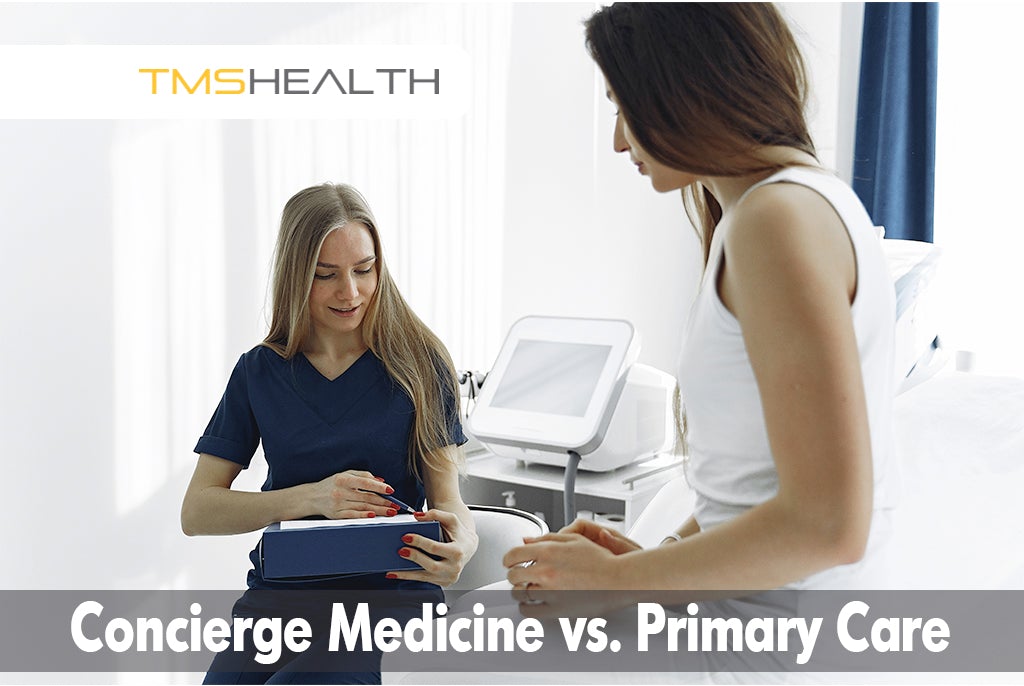What is the difference between concierge medicine and direct primary care?
Direct primary care and concierge medicine are linked and in fact, concierge practice models will generally include direct primary care. However, concierge practices encompass a greater range of healthcare models than just direct primary care practices.
Direct primary care and concierge medicine both offer a closer billing relationship between patients and physicians where patients pay directly for their care rather than the medical practice billing insurance companies. Primary care physicians that switch to concierge medicine are able to reduce administrative overheads and improve patient relations making this an increasingly popular form of practice management.
When patients pay for concierge medicine they’re able to get better access to their family physician both in terms of waiting times and the length of appointments. Patients are also able to take a more preventative approach to their health and total wellness as the direct and concierge care model is able to use more integrative medicine.
Both the direct primary care model and concierge care require patients to pay a monthly fee like a retainer or membership fee that then allows them access to the physician’s practice and the ability to build a personal relationship and personalized health plan with their doctor. Many consider concierge medicine and direct primary care practices so appealing simply because of this more personal doctor-patient relationship which is much more similar to family practices of the past than many practices today.
Whether you are looking for family medicine, internal medicine, geriatric medicine, travel medicine or mental health medicine, taking a more personalized and integrative approach has many benefits. But how do you choose between direct primary care and concierge medicine?
Direct Care vs. Concierge Medicine
One of the key factors in the concierge medicine vs. direct primary care (DPC) decision is whether or not the agreement you enter relies solely on membership fees and direct payments or whether your provider bills insurance companies for certain treatments and procedures.
RELATED: Is concierge medicine legal?
Generally speaking, in the DPC model payment is solely via regular fees. This gives physicians a regular income and frees up time to spend with patients. Fees remain the same however many times you need to see your physician and the fees are often lower than concierge medicine which could also be a factor in your concierge medicine vs. DPC decision. Because fees are lower direct private care tends to be less focused on offering premium services.
Another benefit of this model is that the affordable care act accepts it as a valid alternative to medical insurance so you won’t be penalized for being uninsured.
Generally direct primary care providers do not accept Medicare or other medical insurance, whereas concierge care providers will still charge a monthly fee but will bill Medicare or your insurance for certain services such as lab testing.
Concierge Medicine is sometimes referred to as boutique medicine and has traditionally been reserved for those with higher incomes although this is changing as more Physicians make the move to DPC and concierge care. Concierge practices may be more likely to offer different methods of patient engagement such as a patient portal or mobile app that are designed to make access to care as simple and convenient as possible.
When making the decision between concierge medicine and DPC practices there are a number of things to consider including your age, income and general health. Younger middle-income patients for example may be better off with DPC whereas older patients or those with chronic conditions may find concierge care to be more affordable even though the subscriptions are generally higher.
Paying for Concierge or Direct Private Care
One of the considerations when opting for a medical practice that provides DPC or concierge medicine is how to pay for medical expenses, in particular those that are not covered by your annual fees. The good news is that in both instances costs in excess of membership fees can be reimbursed via your employer through a Health Reimbursement Arrangement (HRA). An HRA is a tax-free allowance that can be used to pay for qualifying medical costs.
TMS Concierge Medicine
TMS medical offers concierge medicine relationships to patients who are looking for the highest standards of personalized treatment. This bespoke service focuses on taking a holistic approach to health and wellbeing specializing in treating mental health issues.
